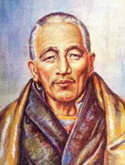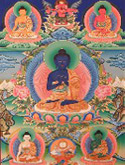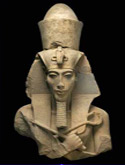A Compilation from the Writings of Alice A. Bailey
(Keywords: Aloneness, alone, lonely, loneliness, solitariness, solitary, solitude, isolated, isolation.)

1. Aloneness
You are a creative worker and have also the ability to work in several creative ways. You are both an artist and a writer. This means that your soul can reach expression and usefulness along two channels. You have, therefore, two definite assets to contribute to world service and two points of expression whereby your soul and your brain are en rapport. Such channels are necessarily media of relation and down them light can flow, irradiating dark places. I would like to point out that creative workers in any field are primarily those who can destroy those glamours to which humanity is prone. These are found in those fields of illusory activity which men have themselves created.
You are taking the place of a creative worker who succumbed – sincerely and honestly – to the glamour of a “free and independent soul” – a paradoxical idea and one which shows forgetfulness of the fact that the heresy of separateness, of aloneness and of independence is a part of the world glamour. This brother was thus unable to cooperate and valued his “personal freedom” higher than the planned group activity and thus for two years delayed this group of workers from arriving at [Page 133] the intended activity. Will you, therefore, seek rapid integration in order to hasten the intended accomplishment? (DINA I-133)
But the point for you to grasp is that this later part of your life is pronouncedly preparatory training for creative group achievement in your next life. One of the problems which we, the teachers upon the inner side, have always to face is how to lead our chelas to the recognition of the temporary and relatively unimportant nature of any one particular life. You had, up to the age of forty-three, no real group sense. You came into incarnation to gain it and found your way into group activity. This proved to you a place of soul satisfaction at times, and of conflict many times. And, my brother, you have made real progress in the evocation of group consciousness.
It has been [Page 233] peculiarly difficult in your case, owing to the two major rays which control you – the first Ray of Power, of isolation, detachment and the sense of uniqueness, and the third Ray of Intelligence, which is apt to bring with it the sense of pride of intellect. This latter you have most successfully controlled. But in this particular incarnation, every step forward in soul control must be taken through the facing of certain tests connected with your line of least resistance, and must be taken with the eyes of the mind wide open, so as to avoid the pitfalls of aloneness, and of separation. This I think you know. (DINA I-233)
Much of your present difficulty is based on the fact that your personality ray is, as you know, that of the first Ray of Will or Power. This gives you a sense of centralisation, of uniqueness and aloneness. It makes the man who is conditioned by it “isolated.” It makes his attitude to his work one of an unconscious separativeness. It is the line of least resistance [Page 378] for you to be separated off from your co-workers or – when urged to identification by your second ray soul – the response is one of going out to them with the inner distinction ever clearly held.
I am not here referring to any pride, brother of mine, but to the absorbing, assimilating, isolating characteristics of the first ray nature. It is the great first ray Lord (to use an illuminating simile) Who, at the end of the age, absorbs all things into Himself and thereby brings about the final and needed destruction of the form nature. This is a right and good use of His first ray qualities. But first ray personalities can also do this type of work, that of absorbing, but this time with destructive results; in their case the task is unnecessary and wrong. (DINA I-378)
What then can you do? I would remind you that one of the things which it is the task of the Master to demonstrate to His disciple is the particular “blind spot” in his life which it is the purpose of the soul to illumine and bring into the light of his consciousness, thus dispelling the darkness and the blindness. This is done by stimulation and suggestion. The stimulation you have been subjected to for years and it has had its dual effect in stimulating the personality to a measured (but inadequate) response to the soul and also by stimulating the personality tendencies to fuller expression. These tendencies, when evoked, registered and recognised for what they are and so handled rightly can then be eliminated. [Page 621]
The task however becomes more difficult as progress on the Path is made, for the subtler qualities and weaknesses emerge and are not so easily detected as are the cruder forms of personality reaction. I would suggest, therefore, that you study the weaknesses of your position in connection with your fellow-workers and your group brothers and so discover the cause of your “aloneness” by registering daily your effect upon people. That means that you study them and not yourself. Do you evoke in your friends and associates a good and happy response or the reverse? Do they show a disposition to seek you out and spend much time in your company? Do they tell you their difficulties in happy discussion and seek your sympathy? How will you discover and be able to answer these questions? That is for you to find out. I can but indicate, for truths accepted on the statement of others are of no real service save as signposts on the way and are not often convincing. It is that which you know for yourself, which is self-ascertained and which is found out through pain, failure, suffering and hurt pride which will bring you to liberation and the end of your (as yet) largely unrealised loneliness. (DINA II-621)
I am anxious for you to make the grade this life, my brother, and here I am speaking technically. I am anxious for you to take the initiation planned by your own soul, and to take it this life, so that you can enter into your next incarnation with the initiate consciousness (of the grade desired), and thus start with greatly increased assets for service. I would remind you that initiation is taken alone; hence my emphasis to you during the past few years upon the need for you to travel alone – spiritually and mentally speaking.
From other angles you travel not alone. The spiritual life is full of paradoxes. We set out to develop a sense of unity and of oneness with all beings, yet at times we must learn the lessons of loneliness and of isolation. A great “aloneness” is the supreme test of the fourth initiation. Remember this. Yet never, my brother, will you be alone, and this too you must have in mind. It is, in the last analysis, a question of recognitions. Let me assure you: I recognise you and, my brother and close friend on the inner side, I know you and love you. (DINA II-759)
It was through this experience that Christ blazed the trail to the very heart of God Himself. Only when the soul has learnt to stand alone, assured of divinity, and yet with no outer recognition of that divinity, can the very centre of spiritual life he recognised as stable and eternal. It was in this experience that Christ fitted Himself for the Resurrection initiation, and so proved to Himself, and to us, that God existed, and that the immortality of divinity is an established and unalterable fact. This experience of loneliness, of being bereft of all that protects, all that has hitherto been regarded as essential to one’s very being, is the hallmark of achievement.
Disciples are apt to forget this, and one wonders for a brief moment, as one listens to Christ thus veiling His agony, whether He was not again “in all points tempted like as we are,” and whether at this moment He did not descend into the deepest recesses of the valley and feel that utter aloneness which is the reward of those who mount the Cross on Golgotha. Although each son of God at different stages upon his way of initiation prepares for this final loneliness by phases of utter rejection, when the final crisis comes he must experience [page 221] moments of loneliness such as he could not previously conceive. He follows in the footsteps of his Master, being crucified before men and deserted both by his fellowmen and by the comforting presence of the divine self upon which he has learnt to rely.
Yet because Christ entered thus into the place of outer darkness, and felt entirely deserted of all that had hitherto meant so much to Him, both humanly and from the angle of divinity, He has enabled us to gauge the value of the experience, and has shown us that only through this place of outer darkness, which the mystics have justifiably called “the dark night of the soul,” can we truly enter into the blessed companionship of the kingdom. Many books have been written about this experience, but it is rare – far rarer than the literature of the mystics would have us believe. It will become more frequent, as more and more men pass through the gates of suffering and of death into the kingdom. Christ hung pendent between heaven and earth, and although He was surrounded by crowds, and although at His feet stood those whom He loved, He was utterly alone. It is the loneliness whilst accompanied, the utter sense of being forsaken whilst surrounded by those who seek to understand and help, which constitutes the darkness. The light of the Transfiguration is suddenly obliterated; and because of the intensity of that light, the night appears more dark. But it is in the dark that we know God. (BTC 22).
Ray 1 – The glamour of isolation, of aloneness, of aloofness. (GLAM)
Such is the true goal, as yet unrealisable by us. What is it that we are endeavoring to do? We are treading the Way of Release, and on that way, all drops from our hands; everything is taken away, and detachment from the world of phenomenal life and of individuality is inevitably forced upon us. We are treading the Way of Loneliness, and must learn eventually that we are essentially neither ego nor non-ego. Complete detachment and discrimination must finally lead us to a condition of such complete aloneness that the horror of the great blackness will settle down upon us. But when that pall of blackness is lifted and the light again pours in, the disciple sees that all that was grasped and treasured, and then lost and removed, has been restored, but with this difference – that it no longer holds the life imprisoned by desire.
We are treading the Way that leads to the Mountain Top of Isolation, and will find it full of terror. Upon that mountain top we must fight the final battle with the Dweller on the Threshold, only to find that that too is an illusion. That high point of isolation and the battle itself are only illusions and figments of unreality; they are the last stronghold of the ancient glamour, and of the great heresy of separateness. Then we, the Beatific Ones, will eventually find ourselves merged with all that is, in love and understanding. The isolation, a necessary stage, is itself but an illusion. We are treading the Way of Purification and step by step all that we cherish is removed, – lust for form life, desire for love, and the great glamour of hatred.
These disappear and we stand purified and [Page 35] empty. The distress of emptiness is the immediate result; it grips us and we feel that the price of holiness is too high. But, standing on the Way, suddenly the whole being is flooded with light and love, and the emptiness is seen as constituting that through which light and love may flow to a needy world. The purified One can dwell then in that place where dwell the Blessed Lords, and from that place go forth to “illumine the world of men and of the deities”. (EP II-34)
A sense of isolation. Putting this into more modern language, a complex is produced of the same nature as that which temporarily overcame Elijah. He was overwhelmed with a sense of his clarity of vision in relation to the problem with which he was faced, of his unique response to it, and also with a sense of aloneness which devastated him. (EP II-365)
I have sought to bring the above thoughts to your attention because the sign we are now studying is one in which the theme of self-consciousness lies open to the investigator. Mass consciousness in Cancer gives place to individual consciousness in Leo. Out of the mass or the herd emerges the self-sufficient unit which becomes increasingly aware of its oneness, its aloneness and its isolated attitude as the “one in the centre” of its small cosmos. (EA 293)
Vulcan is the ray or planet of isolation for, in a peculiar sense, it governs the fourth initiation wherein the depths of aloneness are plumbed and the man stands completely isolated. He stands detached from “that which is above and this which is below.” There comes a dramatic moment when all desire is renounced; the will of God or the Plan is seen as the only desirable objective but as yet the man has not proved to himself, to the world of men or to his Master whether he has the strength to move forward along the line of service.
There is revealed to him (as there was revealed to the Christ at the fourth great initiatory crisis in His life) some definite, active undertaking which embodies that aspect of the will of God which it is his peculiar function to appropriate and make possible of expression. This has been called in the Christian phraseology, “the Gethsemane experience.” (EA 392)
The second important thing is for the patient to remember, if his condition permits, that what he is enduring is the fate and the lot of the majority, and that he is not alone. A right handling of ill health is a major factor in breaking down separateness and a sense of aloneness and isolation; that is why the effects of bad health, when rightly handled, lead to a sweetening of the disposition and a broadening of the sympathies. Sharing and a sense of general participation has usually to be learnt the hard way – such again is the law. (EH 545)
The Form of the Environment. This is really the evolutionary working out of the involutionary group soul. It relates to our contacts, not just exterior, but on the inner planes as well. In similarity of vibration [Page 263] comes coherency. When therefore a man raises his vibration and builds anew from om the beginning, and alters consequently his key, it results in dissonance in his surroundings and subsequent discord. Therefore – under the law – there comes always to the striver after the Mysteries and the manipulator of the law, a period of aloneness and of sorrow when no man stands by and isolation is his lot.
In lesser degree this comes to all, and to the arhat (or initiate of the fourth degree) this complete isolation is a characteristic feature. He stands midway between life in the three worlds and that in the world of adepts. His vibration does not synchronise, prior to initiation with the vibrations of either group. Under the law he is alone, But this is only temporary. When the environment satisfies then is the moment of anxiety; it indicates stagnation. The application of the law causes primary disruption. (TWM 263)
The instinct of sex has its main root in the fear of separateness and of isolation, and in a revolt against separative unity on the physical plane, against aloneness; and it has resulted in the carrying forward of the race and [Page 627] the persistence and propagation of the forms through which the race can come into manifestation. (TWM 627)
Christ faced this last attack and emerged victorious, thus guaranteeing to us our ultimate victory. The devil approached Jesus when the forty days of solitary communion were over. We are not told what Christ did in those forty days. No account is given to us of His thought and determinations. His realisation and consecration at that time. Alone, He faced the future, and at the end, encountered the tests which released Him from the power of His human nature. As we study the life of Jesus this solitariness emerges ever more clearly. The great souls are always lonely souls.
They tread uncompanioned the most difficult parts of the long way of return. Christ was ever lonely. His spirit drove Him again and again into isolation. “The great religious conceptions which haunt the imaginations of civilized mankind are scenes of solitariness: Prometheus chained to his rock, Mahomet brooding in the desert, the meditations of the Buddha, the solitary Man on the Cross. It belongs to the depth of the religious spirit to have felt forsaken, even by God.”
Christ’s life alternated between the crowd whom He loved and the silence of the solitary places. First He is to be found in the daily life of the family experience, where the intimacies of personalities can so sadly imprison the soul; thence He passed into the solitary desert and was alone. He returned, and His public life began, until the publicity and noise and clamour of this were succeeded by the deep and interior silence of the Cross, where, forsaken of all, He went through the deep dark night of the soul – utterly alone. Yet it is in these moments of complete silence, when the soul is thrown back upon itself and there is no one to help, no hand to aid and no voice to strengthen, that those revelations come and that clear insight is developed which enable a Saviour to emerge for the helping of the world. (BTC 111)
2. Loneliness
The glamour of the mind and of its efficiency and its capacity to deal with any or every problem. This leads inevitably to isolation and loneliness. (DINA 1-27)
In closing this instruction, brother of mine, will you remember that the lonely way is also the lighted way. Loneliness is an illusion which seeks to thwart the efforts of the server; it is a glamour which can seriously impair true vision. That you may walk the Way in peace and light and that power in service may be yours is the desire of my heart for you. (DINA I-113)
To my fellow disciple, F.C.D., who works in that loneliness which is so difficult for the second ray type. (DINA I-138)
Your period of difficulty and of loneliness has not lessened for you and you have found it hard to struggle along. I have not much to say to you at this time; you are coming closer to your Master and in such cases fellow disciples may not interfere. The greatest help that I can give you at this time is to make the above statement to you and this I do. You have the persistence and the will (like tempered steel) of the second [Page 140] ray and can dismiss all fear as to your capacity to weather the storm and difficulty and to win through. Nothing can stop you. (DINA I-139)
This “gentle, unrecognised withdrawing” (as it has been termed) has its basis in many things. It can be a mode of self-protection, necessitated by long years of extreme sensitivity; this eventually must give place to the guarding of the group interests. It may be the result of shyness and of an inarticulate nature which longs and seeks for the companionship of the Way but knows not how to bring it into functioning process. It may be the result of a critical nature, for it is the critical mind which separates and divides, as you well know.
It may again be caused by a habit of loneliness, induced by inherent natural tendencies, or by executive position and the circumstances of the individual life, or by sorrow [Page 185] or shock in early life experience. This must be balanced by an outgoing on the part of the soul which then shifts the whole problem of relations to a higher level of contact and brings release and the power to communicate, which is the hallmark of group life. (DINA I-184)
But it is by standing alone that all disciples grow and by feeling their way and discovering their own peculiar line of approach to the centre from which light streams out, and also by responding steadily and in realised loneliness to the call of duty and service. Now, however, the time has come when you can work with clearer vision, with a closer cooperation with and from the inner Centre and with less loneliness. (DINA I-186)
I would suggest to you that your major danger at this time lies in a glamour which is the result of loneliness. There are certain glamours which work out as the result of a too close and restricted inner, spiritual life and an imposed introspection. Having no one to whom to talk and being far from your spiritual brothers, you are much alone; and being in a position of the one who teaches and who gives, you stand somewhat isolated and have withdrawn yourself – perhaps unduly, even if unavoidably – from the personality angle.
This results in your creating a potent thoughtform of aspiration, of spiritual interpretation and of spiritual aims and goals. But this constitutes a thoughtform, my brother, no matter how lofty in nature, and can result in a pronounced glamour and a glamorous control in some form or another. It can speak to you and condition your psychology and of it you should be aware and so on guard; you should recognize it as your own creation, to be conditioned and controlled by you and not vice versa. You will, I think, know to what I refer.
NOTE: This disciple is still struggling, under conditions of great loneliness and in one of the Latin countries, to carry out the Tibetan’s work and doing so most successfully. (DINA I-189)
With you, however, this isolation is not the result of any separative tendency of the lower mind, for that is offset in you by your deep-seated love of the Masters and of humanity. It is the result of the essential loneliness which has beset your path, as it does the path of all disciples, and the development of that instinctive reticence which is an aspect of the necessary equipment of all who are struggling towards the Portal of Initiation. The vow of silence which all disciples take must still be kept, but the power to share knowledge, experience and the gains of illumination must at the same time be cultivated; in the light which streams forth from the centre of Light, all that concerns the personality and service must stand revealed.
All secrets must fade away, yet the revelations which come as one progresses along the Path must be held in the secret chamber of the heart where none may see them but those who share the same secrets. The reticence to be cultivated is that of relationship with the group of Masters and the Hierarchy, plus the knowledges you share with those who walk shoulder to shoulder with you upon the Way. You withhold also, as dangerous, knowledge which you may have from those who are not yet upon the Path of Discipleship. It is skill in action and in the distribution of information which must be developed. I mention this so that you may know the rightness of your attitude but also in order that you may gather the fact that the present cycle of loneliness is still objectively true but subjectively ended. Do you understand what I mean, my brother? (DINA I-211)
The past few months have been difficult for you. They have involved decision, changes, much misunderstanding in certain quarters and a deeply sensed loneliness. If you will study what I have earlier told you anent your rays, you will see why this is so. There is in your present life make-up or “presented appearance,” an over-balance of the first ray attributes. Your personality ray, your mind ray, and the ray of your physical body are all governed by your first ray energy and this presents a very real problem because it predisposes you to the following conditions:
1. A loneliness which is based on a sense of isolation. This is due also to the sense of isolation which the first ray always gives. It is essentially the ray of detachment. This is, for you, offset by your soul ray. (DINA I-221)
This determination of yours is sound. It has met a most needed demand of your own soul. It has been necessary for your personality to be forced by your soul to go the lonely and isolated way. (DINA I-278)
I would ask you to correspond at times with a brother whose name I will give you. He needs your wisdom and your strength, and you can help him through a period of apparent loneliness from which he now suffers. (DINA I-282)
The fear of an isolated loneliness has oft beset you, yet you have realised at the same time that that type of loneliness is oft the setting of the disciple. The increased sensitivity of a disciple’s vehicles causes him gradually to become aware of the true world of subtler values. (DINA I-310)
The reason for this is that – through your definite soul contact – you tend to express the outstanding quality of the first ray which is loneliness, isolation (not separativeness with you, my brother, for that is not one of your faults), the ability to stand alone and unmoved. (DINA I-320)
….that first ray tendency does to you two things:
a. It feeds your sense of separativeness and thus tends to isolate you.
b. It fosters your fear of attachment. Thus you are oft emotionally and astrally detached and isolated from those who love you and from your fellowmen. Hence there is a continuing conflict between your loving soul and your isolated, lonely, astral vehicle. The solution will be immediately clear to you. (DINA I-370)
D.H.B. has been through the fire. His tests and difficulties have been greater, fiercer and deeper than any that have come to the other group members. Pressure incident to his home karma, frustrations coming from his environment, misunderstandings of differing kinds, basic bad health at all times, plus the serious accident of the immediate past, loneliness, pain and clouds of recognised glamour have sought to engulf him. They cannot do so. This he also knows and is coming through. (DINA1-396)
A member of your group of co-disciples has been through deep sorrow, as all of you know. The processes of re-adjusting the rhythm of her life, becoming accustomed definitely to changed conditions, to loneliness and loss is weighing heavily upon her. She must realise that she is on her way to a greatly enriched life of service, and that her only present need is to stand steady and to give herself time to stabilise into her new rhythm. (DINA I-396)
You are emerging from the condition of difficulty and you are facing – as a result – a life of fuller service and of deepened understanding of others. Freedom from difficulty will never be your lot. Would you have it otherwise? Loneliness grows as the aspirant detaches himself from the world of souls. There comes ever an interlude wherein the disciple senses an intense seeming isolation, but it is only an illusion. You know that you are not alone. You know well how rich your life is today, and how strengthened each and all of you are through contact with your brothers. (DINA I-419)
To you, my brother, I would say (and you will understand): Strength is yours, because you have steadily trodden the lonely path of the disciple. Wisdom is yours and this you use in the helping of the little ones. Beauty must be now the object of your attention. In meditation, I would have you meditate upon the twelve-petalled lotus of the heart, visualising it as a deep rose in colour with a heart of gold. I choose the colour rose, for it will vitalise the astral counterpart of the heart centre, both in the spine and in its higher aspect in the head centre.
My brother need not infer from this that he loves not, but the pronounced first ray type needs what is occultly called “the rose of attachment.” They find easily the way of detachment; they create with facility a protecting shell and they cherish – with high idealism – their isolation. But when the lesson of isolation is learnt and detachment is the line of least resistance, then the Rose of the soul should be nurtured and shine forth. Impersonality is easy for you. You must now learn to be personal with complete impersonality – a paradoxical acquirement but one of great value. (DINA I-621)
Into the dark the life proceeds. A different voice seems to sound forth. “Enter the cave and find your own; walk in the dark and on your head carry a lighted lamp.” The cave is dark and lonely; cold is it and a place of many sounds and voices. The voices of the many sons of God, left playing on the playground of the Lord, make their appeal for light. The cave is long and narrow. The air is full of fog. The sound of running water meets the rushing sound of wind, and frequent roll of thunder. (DINA I-675)
In my previous instruction I stressed three points to which I would like again to refer in the light of the emerging opportunity. My task is not to change you or to give you orders and commands. I have only one task, and that is to find and test out those who can serve the race under inspiration from the Ashrams of the Masters. I referred at that time to the loneliness which is one of the first things that indicates to a disciple that he is being prepared for initiation. It will be apparent, therefore, that the loneliness to which I refer is not that which is incident to those weaknesses of character which repel one’s fellowmen, to an aloof or disagreeable nature, or to any form of self-interest which is so emphasised that it antagonises other people.
There is much loneliness in a disciple’s life which is entirely his own fault and which is subject to cure if he employs the right measure of self-discipline. With these he must deal himself, for they concern the personality, and with your personalities I have no affair. I refer to the loneliness which comes when the accepting disciple becomes the pledged disciple and steps out of a life of physical plane concentration, and of identification with the forms of existence in the three worlds, and finds himself in the midway place, between the world of outer affairs and the inner world of meaning.
His first reaction then is that he is alone; he has broken with the past; he is hopeful but not sure of the future; the tangible world to which he is accustomed must, he knows, be superseded by the intangible world of values, involving a new sense of proportion, a new range of values and new responsibilities. This world he believes [Page 46] exists, and he steps forward bravely and theoretically, but it remains for a while wholly intangible; he finds few who think and feel as he does and the mechanism of sure contact only exists within him in embryo.
He is breaking loose from the mass consciousness with which he has been merged hitherto, but has not yet found his group, into which he will eventually be consciously absorbed. Therefore, he is lonely and feels deserted and bereft. Some of you feel this loneliness; few of you have, for instance, reached the point where you feel yourselves to be a definite, integral part of the group; only two or three of you realise – briefly and fleetingly at times – the close link with the Ashram; your attitude is largely one of hope, coupled with the idea that it is your physical limitations which prevent your realising all that truly is, in connection with your inner affiliations.
But, my brothers, such a sense of loneliness is only another form of self-consciousness, of undue self-interest, and (as you make progress upon the Path) you will find it disappearing. If you therefore feel lonely, you must learn to look upon it as a glamour or illusion and as a limitation which must be overcome. You must begin to act as if it were not. If only more disciples would learn the value of acting “as if.” There is no time for any of you to be lonely these days, for there is no time for you to think about yourselves. (DINA II-45)
I have seemed to you perhaps to have been silent and to have left you somewhat to yourself. Such is not, however, the case in reality. You have walked ever under my watchful eye, but there was little that I could do until you had somewhat broken the “intent to loneliness” with which your personality has so constantly met the advances of your soul. This personality reaction you are learning rapidly, as a conscious soul, to repudiate. Loneliness, isolation, a sense of being deserted and a separativeness (based on sensitivity in most cases) distinguish the first ray disciple, until he learns to preserve his divine sense of “unified identity” whilst merging, at the same time, with others. This again you are learning to do. (DINA II-497)
You know that you are preparing for initiation; you know which initiation it is. It is because of this preparatory period that the past three years have seen you seriously tested, and tested in every aspect of your nature. There is, nevertheless, little that I have been able to do for you because loneliness is one of the assets and also aspects of this work of preparation. Disciples ever take initiations alone, even when preparing for and taking group initiation. (DINA II-522)
The loneliness of your life warrants at times my endorsing any spiritual confidence of which you may be possessed. Disciples need to learn sometimes that their spiritual status is not always [Page 562] evocative of a life of violent outward activity. For such as you, with the handicap of a frail body and the limitations of karma, the place of triumph has to be exactly where you stand and within the circumference of a somewhat limited physical sphere. (DINA II-561)
4. Loneliness – such as you think you know – is but a glamour, brother of mine. You are not alone. But loneliness such as you can know is a light that lights the darkness. Seek that out.
5. Upon the pinnacle of loneliness is the sole peace where truth is known. Stand on that pinnacle. (DINA II-627)
You will discover, my brother, under these symbols the lesson which I am seeking to convey to you. I enjoined you in my last instruction to realise the need of achieving a pinnacle of loneliness, for on that pinnacle lies for you that which you need. What that is, you must find out for yourself. Have you learnt something anent this lonely spot? If so, the next development for you may involve (I did not say “would”) the lonely moments spent as you, from pillar to pillar, advance along the corridor, spurred by the needs of those you seek to serve. Then will come the moment when the senior disciple will symbolise for you the end of loneliness and greet you as a brother. What takes place later between you and the Master is your own individual secret, shared with Him. (DINA II-635)
My heart has gone out to you during the past year as you have struggled with fatigue, with loneliness, with foreboding [Page 652] and with anxieties of many kinds. You have stood with constant steadiness and you must know by now how highly steadiness is regarded by the Hierarchy. These culminating years of your life have been years of great difficulty and much pain – not only for yourself but for others.
They have been years wherein everything has been wrested from you, leaving you upon that “pinnacle of loneliness” about which I spoke to your brother, W.D.S., in my instruction to him last year. I would have you regard that pinnacle as an exalted place from which the new vision can be seen. That pinnacle can be turned into a mount of initiation. (DINA II-652)
You frequently failed to see life from the angle of the ordinary man and from the effect which karma produced in the life of the average citizen. You thought in terms of one group. This you are learning to negate and the loneliness of your present life has greatly aided your withdrawal from this astral concentration upon a group thoughtform. (DINA II-692)
Strive to cultivate a happy spirit. Let not life, loneliness or any circumstances unduly depress you. Dwell not too much upon world horror, but aim – in meditation – at conveying strength and wisdom to the world leaders as they seek (as they do) to bring order out of chaos. I would like to see you resume your work in the teaching group. You have the time, my brother, and a definite service which you needs must render would be good for you. Your help is needed. (DINA II-695)
Inevitably, my brother, this situation which you have had to handle in relation to the work for which you are responsible, in relation to your personal and family life and to the future which lies open before you, has entailed much strain. To these factors must be added another one which is that you are essentially alone. This basic loneliness is due to several [Page 704] things: First, that you are in training for leadership, and leaders have to learn to stand alone, and can ever do so if they love enough. Secondly, the force of circumstance and the need to work off certain karmic relations has increased your daily contacts, and at the same time has left you far more alone than you were six years ago.
Thirdly, because the greater can always include the less is a lesson which all leaders in training have to grasp; the reverse, my brother, is not true, and the result is loneliness. Ponder on all this and accept it; stand free and move forward on your chosen path, refusing to be limited by those who cannot go your pace. This again means loneliness. And finally, a need for a more loving understanding at times isolates you from your fellowmen, particularly from your co-workers, and you need to beware of a growing critical spirit. (DINA II-703)
Be not afraid of loneliness. The soul that cannot stand alone has naught to give. (DINA II-755)
Occultly speaking, you stand alone; you lead a lonely life, for there is no single person in your environment who shares with you the same quality or grade of spiritual perception. (DINA II-762)
The difference between solitude, loneliness, separateness and isolation. I would refer you to Patanjali* who speaks of “isolated unity.” (DINA II-764)
We shall then have the temporary entrance of a new tenant along the line of a synchronous vibration through the entrance in the head, and the subsequent use of the instrument of the loaned body in service of some kind or another. But this procedure will never be followed in order to satisfy idle curiosity, or an equally idle grief, based on personal loneliness and self-pity.
At present many of the lower kind of mediums are exploited by the curious or unhappy public, and those peculiar human beings whose consciousness is centred entirely below the diaphragm and whose solar plexus is indeed their brain (as it is the brain of the animal) are forced to act as mediums to satisfy the love of sensation or desire for comfort of their almost equally unintelligent fellowmen. (EOH 11)
This they have not yet done because the average Jew is lonely and unsettled, able to do little to put himself right before the world. Instinctively and intellectually, the Jew is separative; intuitively he has vision, but at the same time he possesses no sense of fusion with other peoples. (EOH 194)
That any psychological difficulty is universal and not unique. It is the sense of uniqueness – with its separative tendency and its realised loneliness – which is often the all-engrossing factor. It makes the personality too important, and this should be definitely negated. (EP II-427)
This sign [Cancer] can carry deep meaning to all. You are in process of incarnation; you are following your chosen way. Is the house you are building yet lit? Is it a lighted house, or is it a dark prison? If it is a lighted house, you will attract to its light and warmth all who are around you and the magnetic pull of your soul, whose nature is light and love, will save many. If you are still an isolated soul, you will have to pass through the horrors of a more complete isolation and loneliness, treading alone the dark way of the soul.
Yet this isolation, this loneliness and this separation in the dark night are all part of the Great Illusion. It is, however, an illusion into which the whole of humanity is now precipitated in preparation for unity, freedom and release. Some are lost in the illusion and know not what is reality and truth. Others walk free in the world of illusion for the purposes of saving and lifting their brothers, and if you cannot do this, you will have to learn so to walk. (EA 343)
The urge to mate becomes peculiarly strong when men are removed from their familiar settings and experience the novelty of complete loneliness, when the normal inhibitions and customs imposed by family relationships and national standards are removed. (EH 222)
The fear and the morbidness which the subject of death usually evokes, and the unwillingness to face it with understanding are due to the emphasis which people lay upon the fact of the physical body and the facility with which they identify themselves with it; it is based also upon an innate fear of loneliness and the loss of the familiar. Yet the loneliness which eventuates after death, when the man finds himself without a physical vehicle, is as nothing compared to the loneliness of birth.
At birth, the soul finds itself in new surroundings and immersed in a body which is at first totally incompetent to take care of itself or to establish intelligent contact with surrounding conditions for a long period of time. The man comes into incarnation with no recollection as to the identity or the significance to him of the group of souls in bodies with which he finds himself in relationship; this loneliness only disappears gradually as he makes his own personality contacts, discovers those who are congenial to him and eventually gathers around him those whom he calls his friends.
After death this is not so, for the man finds on the other side of the veil those whom the knows and who have been connected with him in physical plane life, and he is never alone as human beings understand loneliness; he is also conscious of those still in physical bodies; he can see them; he can tune in on their emotions, and also upon their thinking, for the physical brain, being nonexistent, no longer acts as a deterrent. If people but knew more, birth would be the experience which they would dread, and not [Page 393] death, for birth establishes the soul in the true prison, and physical death is only the first step towards liberation. (EH 392)
Sorrow, loneliness, unhappiness, decay, loss – all these are ideas which must disappear as the common reaction to the fact of death also vanishes. (EH 394)
The omniscience of the divine Whole is also brought home to the initiate through the medium of the clear cold light, and the phases of “isolated experience,” as it is sometimes occultly called, is forever ended. I would have you realise what this can mean in so far as possible to your present consciousness. Up till the present, the initiate-disciple has been functioning as a duality and as a fusion of soul-energy and personality-force. Now these forms of life stand exposed to him for what they essentially are, and he knows that – as directing agencies and as transitory gods – they no longer have any hold over him.
He is being gradually translated into another divine aspect, taking with him all that he has received during the ages of close relation and identification with the third aspect, form, and the second aspect, consciousness. A sense of being bereft, deserted and alone descends upon him as he realises that the control of form and soul must also disappear. Here lies the agony [Page 41] of isolation and the overpowering sense of loneliness. But the truths revealed by the clear cold light of the divine reason leave him no choice. He must relinquish all that holds him away from the Central Reality; he must gain life and “life more abundantly.” (R I-40)
He enters then into the community of souls, and stands not alone. The only lonely periods are the result of wrong orientation and the holding on to that which hides the vision, and fills the hands so full that they cannot grasp what has been called “the jewel in the lotus.” (TWM 90)
For the first time in history is there a coherent group for the Masters to use. Heretofore, there have been lonely isolated workers or tiny detached groups, and this has greatly hampered the work. Now this is changed. (TWM 260)
Those who, with open eyes, enter on occult training need indeed to count the cost. The reward at the end is great, but the path is rough and the true occultist walks it alone. The capacity to stand alone, to assume responsibility, [Page 349] and then to carry all through single-handed, and to brave evil for the sake of the good achieved is the mark of a White Brother. Be prepared then for loneliness, for dangers of a dim and obscure character, and expect to see your life spent for no reward that touches the personality. (TWM 348)
First, the true enquirer is one who avails himself of the wisdom of his generation, who is the best product of his own period and yet who remains unsatisfied and with the [Page 585] inner longing for wisdom unappeased. To him there appears to be something of more importance than knowledge and something of greater moment than the accumulated experience of his own period and time. He recognises a step further on and seeks to take it in order to gain something to add to the quota already gained by his compeers.
Nothing satisfies him until he finds the Way, and nothing appeases the desire at the centre of his being except that which is found in the house of his Father. He is what he is because he has tried all lesser ways and found them wanting, and has submitted to many guides only to find them “blind leaders of the blind”. Nothing is left to him but to become his own guide and find his own way home alone. In the loneliness which is the lot of every true disciple are born that self-knowledge and self-reliance which will fit him in his turn to be a Master. This loneliness is not due to any separative spirit but to the conditions of the Way itself. Aspirants must carefully bear this distinction in mind.
Secondly, the true enquirer is one whose courage is of that rare kind which enables its possessor to stand upright and to sound his own clear note in the very midst of the turmoil of the world. He is one who has the eye trained to see beyond the fogs and miasmas of the earth to that centre of peace which presides over all earth’s happenings, and that trained attentive ear which (having caught a whisper of the Voice of the Silence) is kept tuned to that high vibration and is thus deaf to all lesser alluring voices. This again brings loneliness and produces that aloofness which all less evolved souls feel when in the presence of those who are forging ahead. (TWM 585)
Those, few and far between, who are true Aquarians. These work under real difficulties, for their vision is beyond the grasp of the majority, and they meet often lack of understanding, frequent disappointment in their fellow workers, and much loneliness. (TWM 6323)
3. Solitariness
Man unites with the Monad at the fifth initiation, through the instrumentality of the Lord of the World, the Solitary Watcher, the Great Sacrifice. (IHS 19)
This solitariness has to be faced and understood, and it results in two realisations: first of all, a realisation of your exact point on the ladder of evolution, or on the Path; and secondly, an intuitive perception of the point in evolution of those we contact along the way of life. For quite a long time every disciple refuses to do either of these two things. A false humility, which in reality borders on a lack of truthfulness, [Page 763] keeps him from clear-eyed recognition of status – a recognition which necessarily involves more intelligence and sounds out no call to pride.
Few too dare trust themselves to see their fellowmen as they really are, for fear of a critical spirit – so hard it is to develop the true practice of loving understanding which leads to the seeing of all people in truth, with their faults and their virtues, their pettiness and their grandeurs, and still to love them as before and even more.
This occult solitariness must be consciously developed by you, and not left to circumstances. It is a solitariness which rests on soul attainment and upon no spirit of separateness; it is a solitariness which boasts of many friends and many interruptions, but of these many, few – if any – are admitted to the point of sacred peace; it is a solitariness that shuts none out, but which withholds the secrets of the Ashram from those who seek to penetrate. It is, finally, a solitariness which opens wide the door into the Ashram.
This is the factor you need the most to cultivate at this time. It will necessitate a conscious and definite withdrawal of yourself, and at the same time will lead to a still warmer expression of love upon the outer plane of life.
The closing of this outer group may enable you the more easily to do this, and may deepen your inner life immeasurably. Welcome, therefore, this opportunity. As regards the outer group, I would ask you to keep in close touch, however, through correspondence, with J.S.P.; she is a group brother who sorely needs your strength and knowledge. She has suffered far more than any of you and sorely needs lifting into a sense of security and peace. I commend her to you, and she will be good for you as you for her.
As for your meditation work, my brother, I would have you adhere to the Full Moon procedure outlined earlier by me, and I would ask you to keep this practice up for the remainder of your life. I would have you add to this monthly work a daily practice, founded upon the theme of a chosen solitariness. Note the word “chosen.” It is wiser to cultivate the quality of spiritual solitude than to have it forced upon you – as so often happens to so many. I will suggest only the themes for your meditation, leaving you to work out the form [Page 764] or procedure to suit yourself, or to do without any form if it seems better to you.
Themes For Meditation. One for each month, to be reviewed year by year.
1. The nature of solitude.
2. The difference between solitude, loneliness, separateness and isolation. I would refer you to Patanjali* who speaks of “isolated unity.”
3. Solitude and the daily life.
4. Solitude and the soul.
5. Solitude as a quality of the interior life of an Ashram.
6. The solitude of spiritual perception.
7. The solitude necessitated by the service of the Plan.
8. Solitude as the background of a radiant life.
9. Solitude and contact with the Master.
10. The rewards of solitude.
11. The voices heard in the silence of solitude.
12. The silence of the Spheres.
In this solitude there is no morbidness, there is no harsh withdrawing, and there is no aspect of separateness. There is only the “place where the disciple stands, detached and unafraid, and in that place of utter quiet the Master comes and solitude is not.” (DINA II-763-5)
This rule of solitariness or of withdrawing applies to all the Masters and to the Christ, for it is in the solitude of the mind, and as far as possible in the solitude of physical location, that the various branches of the great White Lodge have chosen to work ever since Atlantean days. It is not the solitude of a separative spirit, but the solitude that comes from [Page 683] the ability to be non-separative, and from the faculty of identification with the soul of all beings and of all forms.
This can best be accomplished in the intense quiet of those “protected” areas where the Masters in the various branches of the Brotherhood have chosen to dwell. This solitude and physical isolation enables Them to work almost entirely from the level of the buddhic or intuitional plane, perfecting the Science of Impression, influencing and working through those minds which are susceptible to Their mental impression. This applies equally to Masters in physical vehicles and to Those Who have “no anchorage” in the three worlds; it applies also to disciples who are in or out of the body, according to their destiny, immediate karma or form of service. St. Paul, for instance, was in the initiate stage of learning rightly to withdraw and to work in what Patanjali calls “isolated unity” when he spoke of himself once as “being caught up into the third heaven” and there learning the untold beauties of the divine life. (EOH 682)
Stand not alone, but with the many join thyself. Thou art the One, the Isolated. Come forth unto thine own. Quality…… solitariness. (EP I-65)
It is only in a spirit of real detachment that the best work of a disciple is done. The disciple comes to realise that because of this detachment he is (for the remainder of his life) simply a worker – one of a great army of hierarchical worker – with supposedly no personality inclinations, objectives, or wishes. There is for him nothing but constant work and constant association with other people. He may be a naturally isolated person, with a deep craving for solitude but that matters not. It is the penalty he must pay for the opportunity to meet the need of the hour. (DINA I-55)
A.A.B. is typically British in her personality attitudes and with her pride of race, heritage, ancient lineage and caste, with her stubborn persistence and dogged determination, with her sense of truth and her attitude of inner solitude. (DINA II-681)
One of the primary conditions that a disciple has to cultivate, in order to sense the plan and be used by the Master, is solitude. In solitude the rose of the soul flourishes; in solitude the divine self can speak; in solitude the faculties and the graces of the higher self can take root and blossom in the personality. In solitude also the Master can approach and impress upon the quiescent soul the knowledge that He seeks to impart, the lesson that must be learnt, the method and plan for work that the disciple must grasp. In solitude the sound is heard. The Great Ones have to work through human instruments and the plan and the vision are much handicapped by failure on the part of these instruments. (TWM 132)
4. Isolation
You will note that so strenuous is the work of breaking down national group isolation and separativeness that it takes the united energies of three groups of workers to bring about the desired results. (EP I-178)
[Ray 3 vices] Intellectual pride, coldness, isolation, inaccuracy in details, absent-mindedness, obstinacy, selfishness, overmuch criticism of others. (EP I-204)
The Blessed Ones remain in isolation pure; and yet at will can take a form. (EP II-33)
[Ray 1] Isolation …leading to… The cessation of isolation. (EP II-39)
Souls on this ray [first] are spoken of occultly as “crashing their way into incarnation”. They appropriate dynamically that which they require. They brook no hindrance in the satisfactions of their desires. They stand alone in a proud isolation, glorying in their strength, and their ruthlessness. (EP II-80)
[Ray 1] Individual isolation. The man is always the “One who stands alone.” (EP II-291)
The word goes forth from soul to form. ‘Both sides are one. There is no war, no difference and no isolation. The warring forces seem to war from the point at which you stand. Move on a pace. See truly with the opened eye of inner vision and you will find, not two but one; not war but peace; not isolation but a heart which rests upon the centre. Thus shall the beauty of the Lord shine forth. The hour is now.'” (EP II-363)
First Ray…………………….Isolated Unity.
Second Ray…………………Inclusive Reason.
Third Ray……………………Presented Attributes.
The first thing the disciple who seeks to use these techniques undertakes is to arrive at an understanding (practical, experimental and subjective) of the appropriate phrase for his ray. Let me paraphrase or elucidate each of them, inadequately perforce owing to the lack of comprehension and the limited evolution of the average disciple, but in any case in order to bring suggestion to your minds.
Isolated Unity is that stage of consciousness which sees the whole as one and regards itself, not theoretically but as a realised fact, as identified with that whole. It is a whole which is “isolated” in the consciousness of the man, and not the man himself who regards himself as isolated. The word “isolated” [Page 392] refers to that complete organised organism of which the man can feel and know himself to be a part. The word “unity” expresses his relationship to the whole.
It will be apparent therefore that this whole is something progressively realised. For the bringing about of this progressed realisation the great expansions of consciousness, called initiations, have been temporarily arranged as a hastening or forcing process. This progression of realised “isolations in unity” may begin with the disciple’s group, environment or nation and, through right use of the understanding, will end by enabling him to isolate the whole divine scheme or living structure, and to identify himself with it in an active capable manner. (EP II-391)
Cancer – And the Word said: Let isolation be the rule and yet the crowd exists. (EA 653)
There are therefore three types of life, affecting the dense appearance of a human being during his restricted manifestation or incarnation:
1. The life of the spiritual man himself, transmitted from the Monad, via the soul for the greater part of manifested existence.
2. The life of that sumtotal which is the elemental life of the fourth kingdom in nature, the human; this life is still an aspect (under the Law of Isolation or Limitation) of the life of the spirit of the earth.
3. The sumtotal of the life which is innate in atomic substance itself-the substance out of which all forms are made. This is the life of the spirit of the earth.
…by means of these atoms-isolated and held by the Law of Attraction in form-he has come into being upon the physical plane. This magnetic power is the expression of the will (if such a word can be applied to the sense of coherency which distinguishes the spirit of the earth) of the planetary entity.
It is a projection of his peculiar state of consciousness into an isolated form, created, occupied and indwelt by a soul, by a living man …. I have several times used the expression “isolated form,” for it is this peculiar aspect of isolation which conditions the physical body of a man (or of any living form, for that matter), rendering it detached, coherent and temporarily living its own life in response to the imposition of the livingness of the incarnating soul. (EH 638-9)
Yet remember how, in all my teachings upon occult unfoldment, I have used the word IDENTIFICATION. This is the only word I have found which can in any way convey the complete unity which is finally achieved by those who develop a sense of unity, and who refuse to accept isolation; separateness then fades out entirely. The isolated unity achieved is unity with the Whole, with Being in its totality (and this cannot as yet convey much to you). (R I-44)
…pain is the cold of isolation which leads to the warmth of the central sun. (TWM 533)
All forms in the solar system form part of the Whole, and are not isolated units. (TCF 5)
8. The symbol for Leo, which is simply the Lion’s tail.
9. The arrow in the symbol depicting Sagittarius.
They embody the idea of isolated separation and one-pointed desire. Two signs are definitely triple in construction and this has a clear meaning to the esotericist. (EA 56)
[mental hydra] 2. Separativeness – which is the isolated attitude and which makes the mind the barrier to right group relations. (EA 206)
Leo-Aquarius. – The individual seeks full expression and arrives finally at the point where he uses his environment for purely individual ends. He dominates his fellowmen for entirely personality objectives. The isolated individual becomes the group ruler or dictator. (EA 338)
Isolated Unity………………………………………..the position of the Master (R I-403)
The true nature of cosmic evil finds its major expression in wrong thinking, false values and the supreme evil of materialistic selfishness and the sense of isolated separativeness. (R I-753)















Much gratitude; long saved and savored again, a guide, a balm. Thank you
Gratitude for this compilation – thank you.